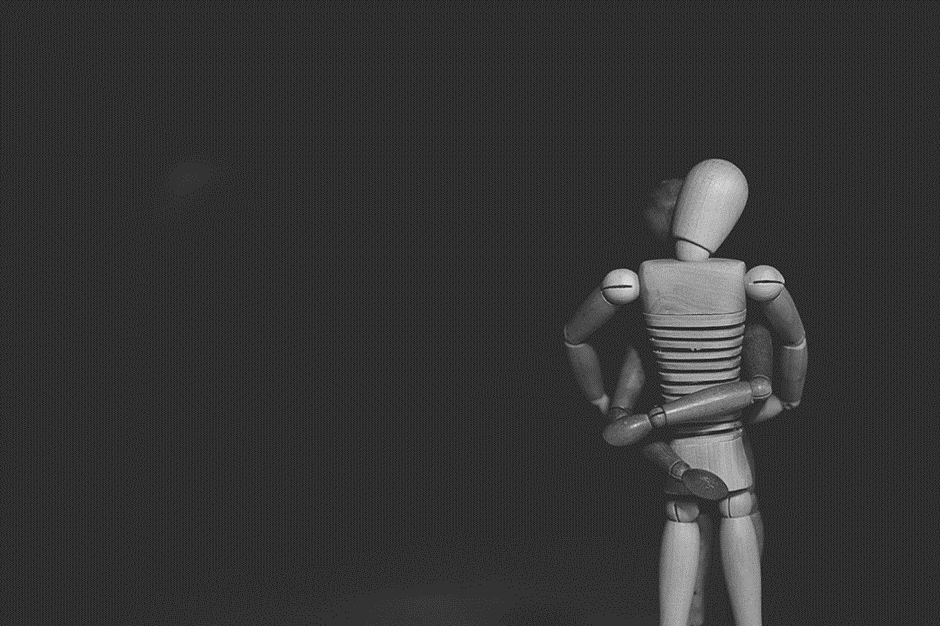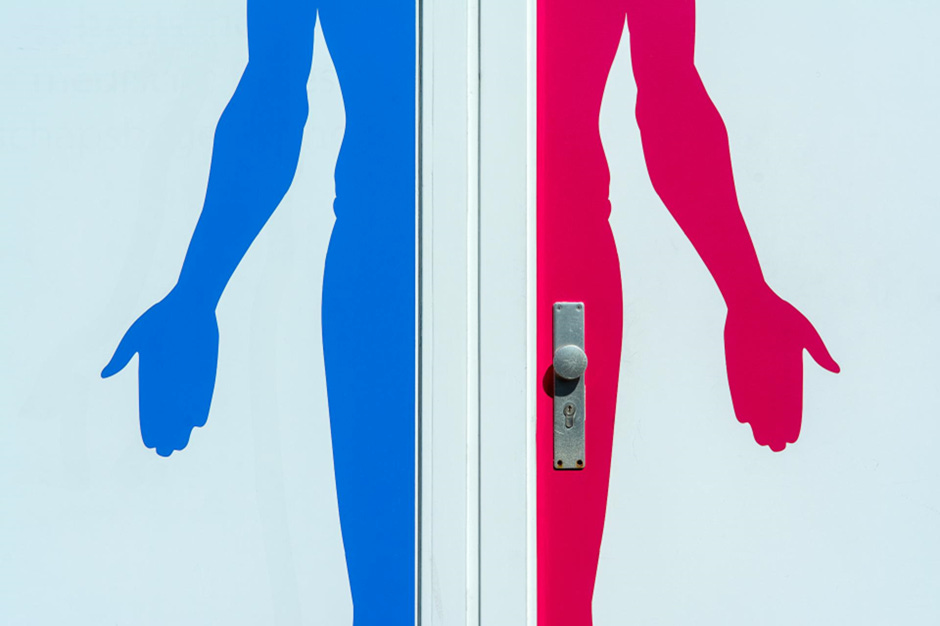No Pride. No Shame! And No Intimacy?
In a world where everything is shared, commented and liked on social media, is there any space for our privacy and even our intimacy? Let's find out.
Scrolling through my LinkedIn feed has become… emotionally disturbing to say the least! A large part of my network has been incredibly vocal about their burnout, microaggressions, lay-off stories, and their “deep reflections” on what constitutes a toxic work environment without including them in the equation!
The most obvious question is, how has this so-called professional social network which used to be a place to show off your recent promotion and views on a report that one has heard of, become Drama Island on steroids? Seriously, just cancel your Netflix subscription!
Logically speaking, LinkedIn should be the least appropriate place to expose your personal views on everything non-work related. Business is business after all. But couldn't it be that we are moving into a society that manufactures users' consent to be less considerate to our privacy?
Before answering this question, let’s compare LinkedIn to its main competitors from a user’s post-intent point of view.
With 44.84 million active users in the UK, Facebook has been in the game for a long time. One of the secrets to its longevity is that people who use this platform love to share their experiences, with the more successful posts tending to focus on more self-absorbed content, such as “I have done this, I went there, I ate this, etc”. Here the focus is on the “I”, showing what “I”, the user, has done.
Instagram’s users’ intent is not only to share their unnecessarily over-rehearsed and over-filtered selfies taken during a last-minute discount holiday in Dubai or Benidorm, but to also drive followers to imitate what they have and, creepily enough, who they are. Here the focus is, paradoxically, on the “You”. No wonder why Instagram remains one of the best platforms for influencers.
With LinkedIn, the focus is on the “We”. The most engaging posts tend to open conversations, sharing knowledge and expertise, and now drama, between colleagues and peers, with a collective tone of voice. The best way to have strong visibility on LinkedIn is to use the platform as a leadership community and not as a pure professional community. #Re-Branding.
If you want to know the best way to organically grow your audience on Facebook, Instagram and LinkedIn, I recommend taking a look at the Ecommerce Nation’s social media guide, which is brilliant.
As well as being one of the advertising platforms for B2B campaigns, LinkedIn is incredibly different from other social media platforms, due to having colleagues (past and present), and sometimes your boss, included in your followers list.
Ok, there’s nothing new there, but to understand the mechanism that pushes LinkedIn’s users to be more conformist, we need to understand two important concepts.
The first one is the “Mimetic desire”, a concept developed by the French Philosopher Rene Girard, who inspired most of the Silicon Valley founders such as Peter Thiel, who invested in Facebook and of course… LinkedIn
René Girard explains that human desires are not intrinsic but imitative. If we desire something it is mainly because others desire it, and this creates a cycle of perpetual imitation leading to insidious rivalry as individuals compete for the same objects and or status. This mechanism also provokes a latent erosion of genuine social bounds; any social media peer becomes a rival to overthrow.
If being successful is the main thing we should covet, it does not come as a surprise to see an ‘extra-flation’ (extrapolation & inflation) of job titles, profile descriptions and achievements on LinkedIn. How many of your connections are now “Inspirational Leaders with a vision”, “Guru, Wizard, Warrior or Sensei in any topic”? What about just being honest and saying, that they are just a ‘Social Media Bull-shiter’?
If rebranding our mediocrity has become the new trend, could it be that LinkedIn’s users are doomed to feel a permanent and pervasive sense of inadequacy? Can we ever feel good enough about who we are when we spend too much time comparing ourselves on social media?
The second concept that needs to be understood on how LinkedIn’s users are more likely to give involuntarily to social conformity is “ the Symbolic interactionism” conceptualised by Erving Goffman.
According to the American Sociologist, people play distinct roles throughout their daily lives and display various kinds of behaviour depending on where they are, the time of day, and what is familiar. Goffman’s theory highlights how individuals adjust their behaviours to align with social norms and expectations. For him, our interactions are driven by our re-action; we continuously interpret and adapt our behaviour to other responses to ensure our actions are socially acceptable.
Unfortunately, this social media tango fosters the seeds of an intrusive and unconscious form of conformity, leading us to avoid any form of confrontation, debate, and disapproval and forcing us to consequently adopt manufactured views, beliefs, and actions.
Come on, you must have paid careful attention to the posts you liked in the past, on how you comment on and share it. You must have wondered whether your engagement could ruin your “professional persona”, or even worse make you become an outsider of the “leadership community”?
If this is the case, could it be that LinkedIn users are trapped in a digital panopticon, a type of circular prison with cells arranged around a central well, where inmates are constantly visible to a central watchtower but cannot see whether they are being watched? In other words, can we be our true selves when we feel we are under constant surveillance by our colleagues and bosses?
Although “Come as You Are” was a famous hit in the 90s by the non-conformist grunge rock band Nirvana, it seems that it has become the motto for companies who are desperately trying to convince young talents to work for them.
While offering a work environment where employees can feel safe, accepted, and able to share some parts of their private lives without any judgement sounds like an honourable thing, I, nonetheless have some issues with that... Shocker!
In this data exchange who has the upper hand? The employee who, thanks to a need to conform, won’t have any objection to sharing and disclosing personal information, or the company, who can use this very sensitive data to reinforce their inclusive positioning on social media?
Hang on a second.
Wasn’t it due to employers using their employees’ sexual orientation and preferences against them that we saw numerous cases of discrimination at work? And didn’t we find that the best way to end this was to pledge that privacy had nothing to do with one’s employability? So, why the hell do companies feel the need to push their employees to share what is the most intimate in the professional sphere? Is work not the least appropriate place to talk about sex?
In a world where everything needs to be shared and commented on, will we have the right to keep anything private? In the West, being asked about our sexual preferences is not perceived as intrusive and refusing to answer it can be considered as a form of shame. I cannot help but wonder why society demands us to pick between shame and pride as a way to measure how happy we are with what we are.
With more questions than answers, I decided to stop writing this article for a couple of weeks, and it was only by reading the astonishing book “Psycho-pathologie du totalitarisme” (sorry I couldn't find the English version) by Ariane Bilheran, that I started to understand the bigger picture.
In her book, the French Philosopher and Clinical Psychologist explores the psychological mechanisms used by totalitarian regimes to manipulate the masses through terror, propaganda, and dehumanisation, with the ultimate goal of controlling all aspects of our lives. To achieve this, totalitarian regimes must destroy any expression of our individuality. One way they do this is by interfering in everyone's intimacy, which, in turn, makes individuals complicit in their oppression.
And there it was, the keyword that tumbled down the walls that prevented my understanding from shining through - intimacy.
And not just that but the constant and insidious attack on our intimacy.
Derived from the Latin ‘intimus’ (“inmost, innermost, most intimate”), a superlative of ‘intus’ (“within”), this word is often incorrectly mixed up with what is hidden or purely interior. However, the concept of intimacy is characterised by its relational nature; in the realm of intimacy, we are never alone.
Intimacy is a sacred place which carries a union, a bond between us and ourselves. Between us and the infinite divine. Between us and someone we have surrendered to and trust wholeheartedly. Intimacy is this un-shareable place where we cannot lie about who we are, where we can unapologetically drop any social mask that we are forced to wear during the day.
To exist and flourish, intimacy must escape the watchful and judgemental eyes of social media. Trust me - everyone judges there. How do you think I got the inspiration for this article?
It is only when we experience authentic proximity to our singularity behind closed doors and embrace the universality of our human condition that we can aspire to be truly free and resist the temptation of being manufactured by “Mimetic desire” and follow blindly any rampant ideology.
So, if social extraction is the only solution, there is one thing you can be sure of - whatever happens in my bedroom is going to stay between me, my partner, and my good old-fashioned camera.
Cheese!
Sources
Psychopathologie du Totalitarisme by Ariane Bilheran
Mimetic desire by René Girard
The Symbolic Interactionism by Erving Goffman
The obsolescence of bullshit jobs by Mr Verdickt
Perfectionists, when do you know when enough is enough? by Mr Verdickt









